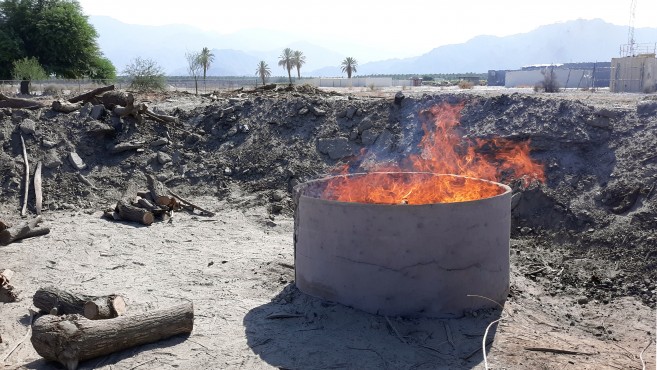The Ecological Imperative
Past and Contemporary Perspectives and Practices
The Summer School takes the notion of an “ecological imperative” of cultural products as its starting point. We ask how specific formats of intermedial cultural production work to engender an ethical and political stance towards human resource management. A general ecological paradigm is part of a growing awareness of the image politics of climate change and the role of cultural sustainability, examined according to the principles of contemporary eco-aesthetics, literatures and new documentary ecologies, but also as revisions of premodern ecological potentials. Recent approaches to ecological temporalities and spatialization have blurred the boundaries between human and non-human life worlds as well as material, technological, socio-cultural, local/global, literary, visual, auditive and virtual spheres. An intermedial blurring of boundaries between the material and conceptual opens up time and space for an “ecological imperative”, a promising heuristic device. In face of an escalating environmental crisis, ecological imperatives have transformed the ways we perceive human interaction with the non-human environment and have nudged all disciplines towards an Environmental Humanities. A humanities-based ecological mode of thinking offers a complicating, connecting, vibrant, processual and open way to make sense of the world, undermining an all too monolithic conception of systems, structures, or fields. And, by starting from a point of entanglement, we recognize that we researchers do not preexist our relationships with our research objects and subjects, colleagues or institutions. Drawing attention to past and present ecological relationships might help us position our research and its objects and subjects, as well as ourselves as researchers, and thus invite us to take an ethical and political stance in a time of planetary crisis. We are in need of critical (re)readings, new self-definitions, and inter- and transdisciplinary dialogue – in short, what an Environmental Humanities seeks to kindle. The 2022 Summer School discusses present, past and future ecologies, both as research topics and as modes of thinking from historical, sociological, cultural, anthropological, philosophical, literary, and artistic perspectives. It reflects, particularly, on the temporalities and spatialization of material and media within which “ecological imperative(s)” are already inscribed.
- How do time and space structure ecological imperatives? How are temporalities and spatializations manifested in concrete matter, artefacts, textures or performative bodies? How do temporal notions (Postapocalyptic, Eschatological, Deep Time, Anachronism, Chronotopos, Linear and Circular Time etc.) correspond to spatial concepts (Oikos, Heterotopia, Biosphere, Human Geographies etc.) and ecological scenarios of concrete environments?
- Given that the “ecological imperative”, as a concept, largely decentralizes and destabilizes the human subject and turns towards non-human performativity, how can we reasonably reconcile the material and conceptual, body/matter and sign?
- If the “ecological imperative” expands the spatio-temporal relationality of our research fields, how can we still reasonably delimit our research, keep it focused and avoid arbitrariness?
- In what ways might performative, experiential, artistic or sensorial research methodologies help us to study ecological imperatives? For example, how can we account for sensual and performative aspects of material culture and media in our own research output—in textual, visual, verbal or auditive forms?
- How can ecological modes of thinking interrogate our own disciplinary positions and lead us towards engaged and future-oriented scholarship?
Invited keynote speakers:
Prof. Dr. Macarena Gòmez-Barris (Professor and Chairperson of Social Science and Cultural Studies at Pratt Institute in Brooklyn, New York)
Prof. Dr. Caroline A. Jones (Professor in the History, Theory, and Criticism section, Department of Architecture, MIT)
Prof. Dr. Hubert Zapf (Professor and Chair of American Literature at the University of Augsburg, Germany)
Organizers: Graduate School of the Arts and Humanities in cooperation with SNF Sinergia “Mediating the Ecological Imperative” / Partner: International Graduate Centre for the Study of Culture (GCSC)
Call for Application For further information about the summer school and the application procedure (application deadline April 24, 2022), please have a look at our call.


